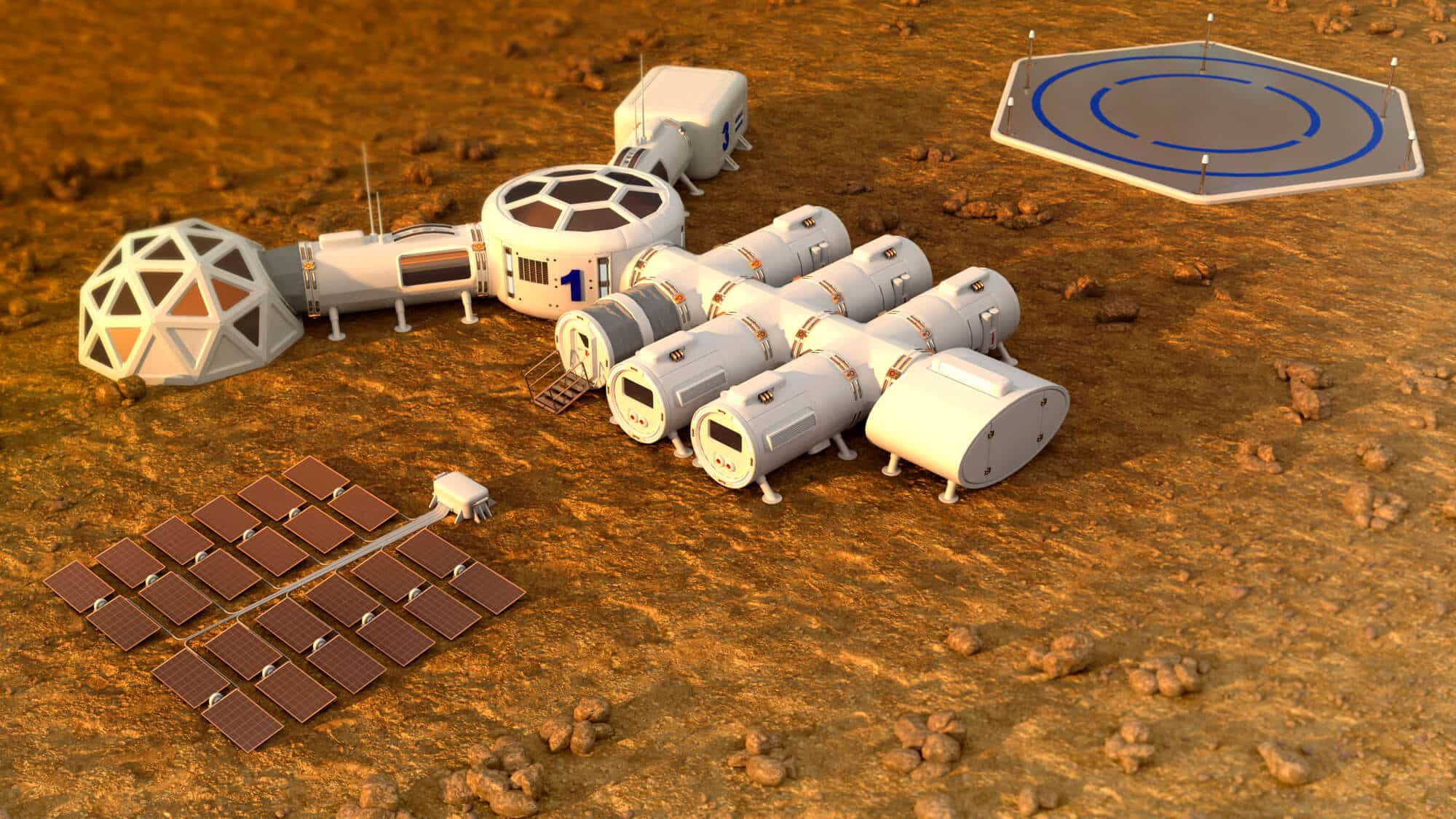A catalyst that breaks down a chlorine compound (perchlorate) in water could help clean the soil on the planet Mars during manned habitation on Mars. It is a substance that accumulates in plants and makes them toxic if it is not removed from the water with which they will water the plants that will be served by humans who will fly there
[Translation by Dr. Moshe Nachmani]

A team of researchers from the University of Riverside, California, has succeeded in developing a catalyst that removes a dangerous substance from water on Earth, a catalyst that could also make the soil on the planet Mars safer for agricultural applications and aid in the production of oxygen that could be used by the planet's researchers.
The anion (negative ion) of perchloric acid (perchlorate), perchlorate, which consists of one chlorine atom bound to four oxygen atoms, is naturally found in various types of soil on Earth, and is especially common in the soil of the planet Mars. As a powerful oxidizing agent, this ion is produced and used in many applications, such as: solid rocket fuel, fireworks, ammunition, primer for opening air bags in cars, matches and light bulbs. The substance is also a by-product in the production of disinfectants and herbicides.
The food grown on Mars could be toxic
In view of the fact that the substance is common both in the soil and in industrial production processes, superchlorine is a common pollutant in water and may cause a number of diseases related to the thyroid gland. The substance tends to lead to biological accumulation (bioaccumulates) in plant tissues and the large amount of it found in the soil of the planet Mars may cause the food that grows there to be unsafe for consumption, while limiting the possibility of human settlement on Mars. The substance, which is also found in the dust surrounding the planet Mars, may be dangerous to breathe even for the researchers themselves. Existing methods for removing perchlorate from water require the use of extreme conditions or the use of a multi-step enzymatic process in order to reduce the oxidation state of the chlorine atom to a harmless chloride ion (such as that found in table salt).
A research team, led by Jinyong Liu, professor of chemical and environmental engineering, was inspired by nature to reduce the concentration of perchlorate in water under moderate pressure and temperature conditions in a single simple step. The researchers noticed that anaerobic bacteria make use of the element molybdenum in their enzymes in order to recycle this substance and while utilizing the chemical energy created in low-oxygen environments. "Previous efforts to produce a chemical molybdenum catalyst for perchlorate reduction were not successful," explains the lead researcher. "The development of many other metallic catalysts requires extreme conditions or these catalysts are not suitable for an aqueous environment."
The researchers tried to mimic the complex bacterial redox process using a simpler approach. They found, simply by mixing a common fertilizer called sodium molybdate, a common organic ligand called bipyridine that binds to the molybdenum atom, and a common catalyst called palladium/carbon, that a powerful catalyst can be produced that quickly and efficiently decomposes the perchlorate anion in water with hydrogen gas at room temperature, without any need for a combustion phase. "This catalyst is much more active than any other chemical catalyst reported in the literature so far, and it causes the reduction of more than 99.99% of the perchlorate into the chloride ion regardless of the original concentration," claims the lead researcher. The innovative catalyst causes the discharge of superchlorine in a wide range of concentrations, starting from a concentration of less than one milligram per liter up to ten grams per liter. This result makes the catalyst useful in a wide range of situations, including cleaning contaminated groundwater, chemical treatment of highly contaminated wastewater obtained during the production of explosives, and up to assisting the ability of the planet Mars to sustain human life on its surface. "A convenient catalytic redox system may produce oxygen from perchlorate leached from the Martian soil when the catalyst is coupled to other processes," explains the lead researcher.
More of the topic in Hayadan:
- Complex molecules containing water and sulfur and chlorine compounds have been discovered on Mars. However, NASA says that no organic substances were discovered
- Mars used to have salt lakes similar to those on Earth
- A vast reservoir of liquid water has been discovered beneath the surface of Mars
- The solar wind is responsible for escaping the Martian atmosphere and turning it from hot and wet to a cold desert
- Curiosity found a channel where water once flowed on Mars
